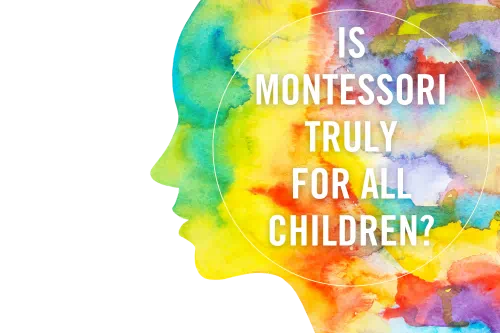
Is Montessori Truly for All Children?
The Pathology Paradigm and Normalization
How Montessori Elementary teachers conceptualize normalization in practice became an area of research interest for me (Laura) when, after only 3 weeks into a school year many years ago, a newly hired teacher fresh out of Montessori training asked me, the head of school, and the director of education to remove 8 children from her Lower Elementary classroom because they were “not normalized.” Half of these children had transitioned from the director of education’s Early Childhood classroom, where they had displayed “normalized” behaviors, particularly during their last year. The other 4 were students new to Montessori. Having a teacher ask administration to remove 8 children from her classroom was a startling and puzzling situation. This teacher, who had graduated from a well-reputed training center and had demonstrated pedagogical understanding during her interviews, was now declaring her unwillingness to persist with children who did not appear “normalized.” She seemed to assume that, as a Montessori teacher, she would only work with children who were entirely self-regulated and eager to thoroughly engage in her lessons and their work. Children who didn’t demonstrate such normative behavior appeared to be a problem—and clearly not her problem. While this example may seem extreme, it clearly illustrates how even Montessori teachers can pathologize student behavior. This example parallels research done in conventional schools that finds teachers may report positive beliefs about inclusive education but are reluctant to have students with disabilities in their own classrooms (Hwang & Evans, 2011). The notion of typicality, evident in both Montessori and conventional settings, influences teacher practice.
Years later, because of this experience, I did a research study examining Montessori Elementary teachers’ perceptions of normalization. Results showed that Montessori teachers have differing conceptualizations of normalization based on their personal preferences. As one study participant stated:



